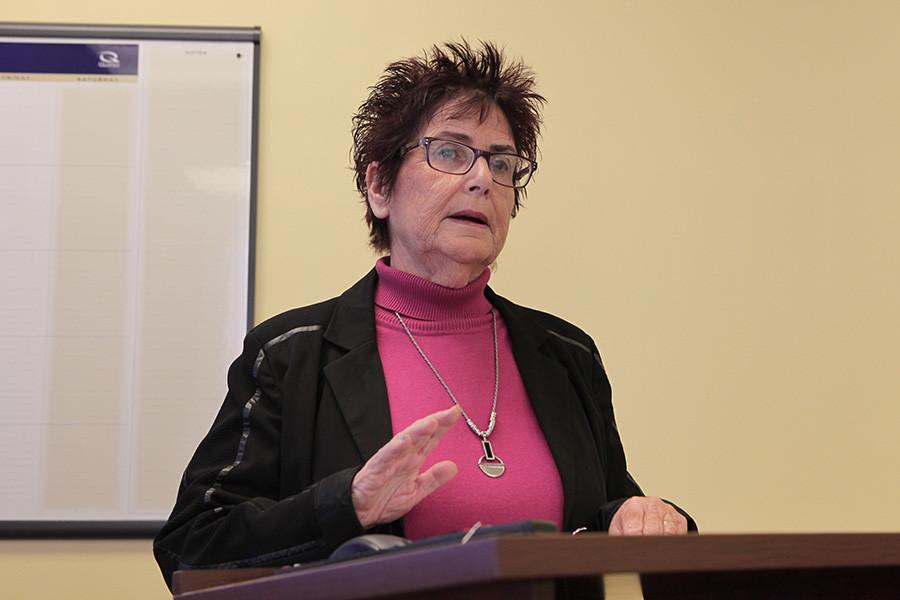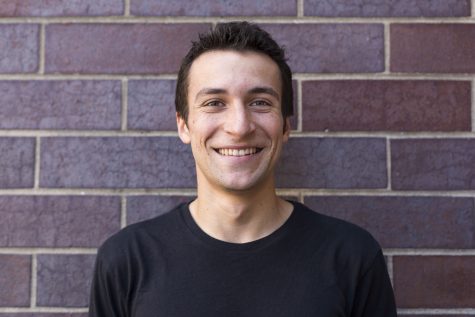Professor discusses poverty research
March 25, 2015
Michal Shamai spoke on Tuesday about her research on poverty as a collective trauma. Shamai’s lecture, hosted by the McSilver Institute for Poverty Policy and Research, explored the process she used to conduct her research and the themes that emerged throughout.
Shamai is an associate professor and the head of the family studies program at the School of Social Work at the University of Haifa, Israel. Her research is largely focused around the impact of traumatic events, as well as mezzo and micro social work.
Shamai’s research, which was conducted in Haifa, involved 12 female participants living in poverty. The research came from the women meeting several times over the span of a year and a half and sharing stories about their lives.
Four main themes emerged in Shamai’s research: the shortage of basic needs, being a parent in poverty, anger directed towards social workers and loneliness in society. Shamai said besides feeling traumatized or stress over their lack of basic needs, there was something else that the women displayed.
“There was some sense of collective fate with which not only the bad things are needed to be shared, but also the some small amount of belonging that they had,” Shamai said.
Aminda Heckman Chomanczuk, a postdoctoral research fellow at the McSilver Institute, said she felt the discussion was an important one to have, partly because it provided a platform for the women to share their stories.
“I don’t think that there’s enough attention being paid to the fact that poverty is a trauma, and especially one that’s accumulative,” Chomanczuk said. “This put some really great stories to that concept.”
All of the participants mentioned their inability to provide for their children, with some remarking that they felt like failures as a result. Four out of the 12 women also admitted that they had been sexually abused as children due to their parents’ consistent absence from the house but had never told anyone.
Ultimately, Shamai agreed with the participants who concluded that they were feeling a collective trauma from their lives in poverty, but said she felt it was a different type of suffering, as the effects were not coming from a single traumatic event.
“It is a type of collective trauma in which the traumatic events continue and accumulate through the life cycle of marginalized groups in society, such as minorities, immigrants and people living in poverty,” Shamai said.
Roni Berger, a professor in the School of Social Work at Adelphi University, said this type of research is necessary because poverty and trauma are often not associated with each other, and their connection must be better understood.
“It’s very creative and very innovative to conceptualize poverty as trauma because it opens a lot of venues in terms of understanding why poor people do things that looks sometimes illogical,” Berger said. “Once we think about them through the lens of trauma, they become very rational.”
A version of this article appeared in the Wednesday, March 25 print edition. Email Alex Bazeley at [email protected].
























































































































































